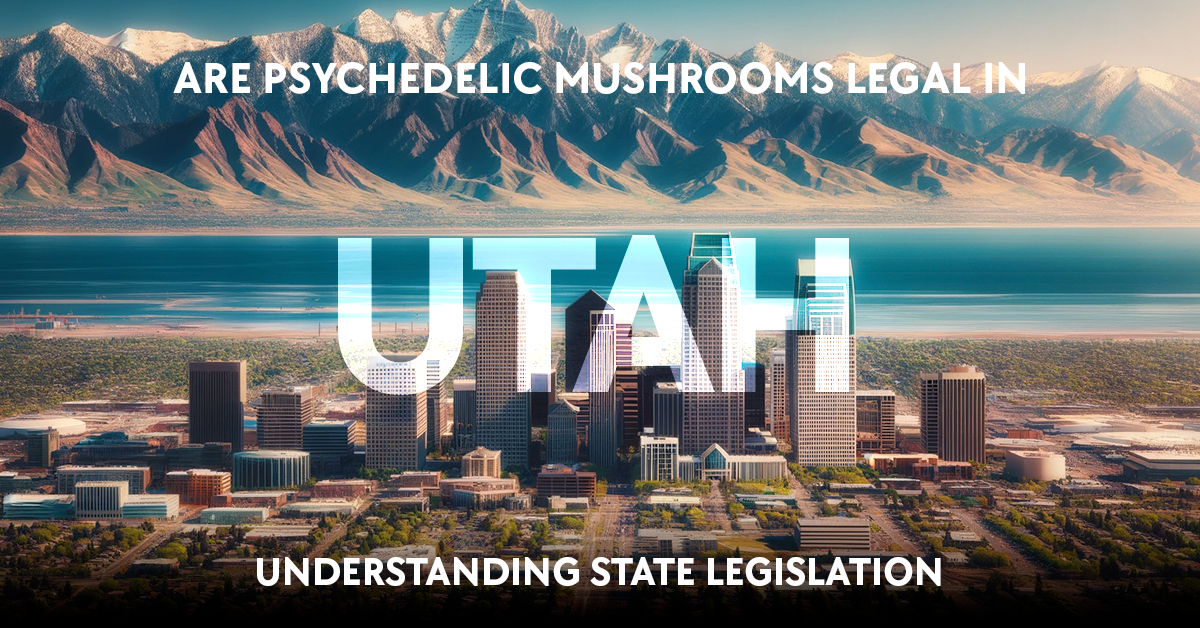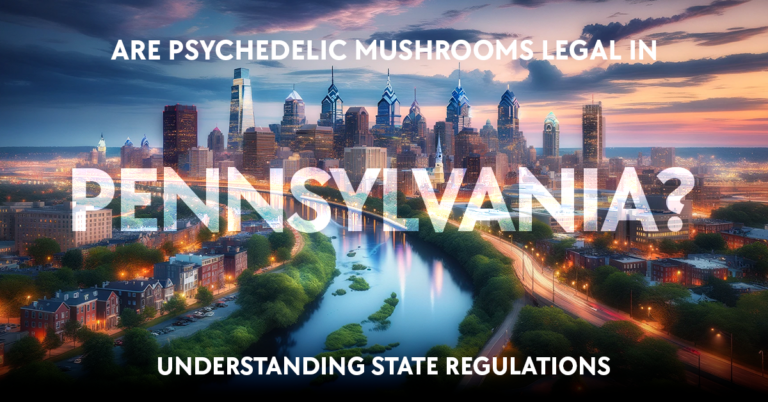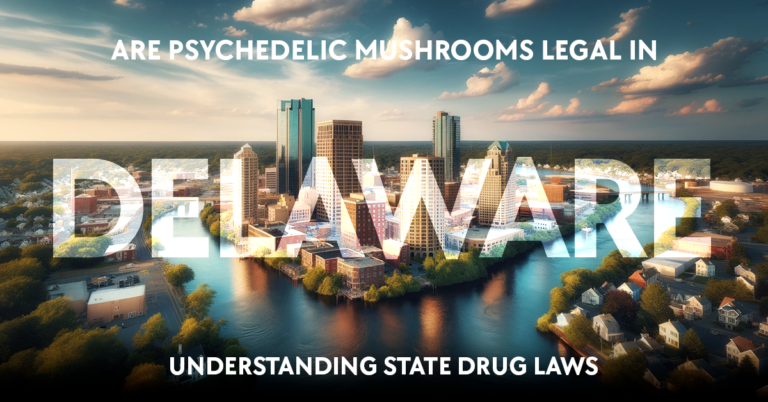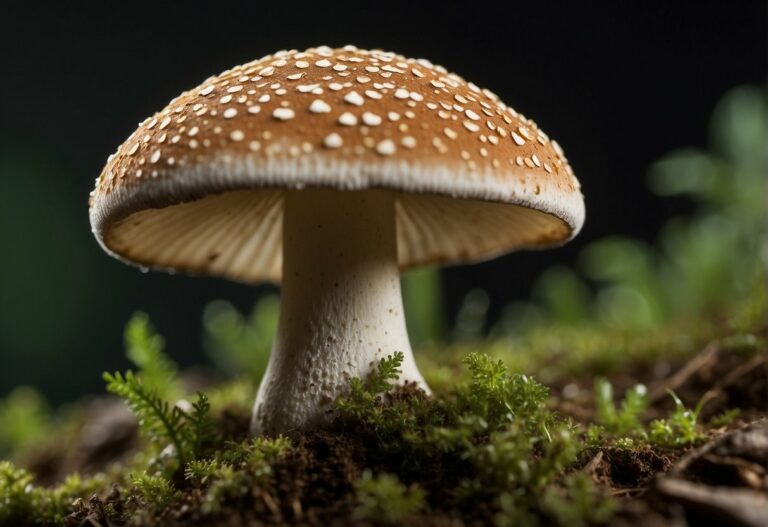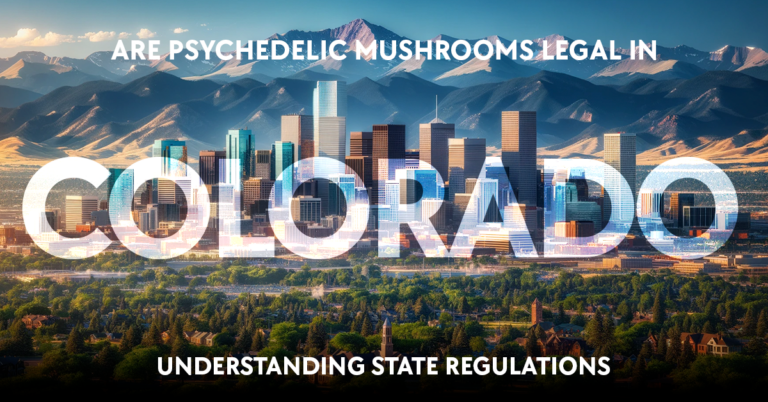When you’re exploring the legal status of psychedelic mushrooms in Utah, it’s important to understand that currently, the possession and use of psilocybin mushrooms are illegal. These substances fall under Schedule I controlled substances both federally and within the state, meaning they are recognized under the law as drugs with a high potential for abuse and no accepted medical use in treatment.

Utah has been known for its stringent drug laws, and any activities involving psychedelic mushrooms are no exception. Efforts to research or change policies related to psychedelics are emerging, mirroring a national trend towards examining the therapeutic potential of these substances. For instance, the Denver City Council’s Psilocybin Mushroom Policy Review Panel includes city officials and law representatives aiming to evaluate the impacts of decriminalizing psilocybin, but no such measures have been adopted in Utah.
Despite the growing body of research indicating potential benefits of psychedelic substances for certain mental health conditions, as of today, you should be aware that the use, possession, or distribution of psilocybin mushrooms remains against the law in Utah, and this includes both recreational and medicinal use. Any changes to the legal status would require legislative action, and thus far, such changes have not occurred in the state.
Legality of Psychedelic Mushrooms in Utah
Table of Contents
https://www.youtube.com/watch?v=dQmbhYQEUOY&embed=true
In Utah, psychedelic mushrooms fall under a complex legal framework influenced by both state and federal statutes. As you navigate this legal landscape, keep in mind that changes are incremental and often driven by shifting political and cultural attitudes within the state.
Current Utah State Law
As of now in Utah, psychedelic mushrooms are classified as an illegal substance. Under the Utah Code Ann., these substances are included in the list of controlled substances, making their possession, distribution, and use illegal without exceptions for medical or personal use. Specifically, state law reflects a strict stance against psychedelics which are not sanctioned through regulatory frameworks for medical applications.
Federal Law and Controlled Substances Act
Federally, psychedelic mushrooms are considered a Schedule I controlled substance. This classification by the Controlled Substances Act means that, according to federal law, they are deemed to have a high potential for abuse, no currently accepted medical use, and a lack of accepted safety for use under medical supervision. As a result, they remain a federally prohibited drug across the United States, including in Utah.
Political Landscape and Recent Propositions
The political scene in Utah remains predominantly conservative, with a Republican legislature that historically values traditional approaches to drug policy. However, conversations are occurring among lawmakers, including Senate Minority Leader Luz Escamilla, about paths to potentially decriminalizing or legalizing substances like psychedelic mushrooms for therapeutic purposes. While no ballot measures have been passed or formal task force or pilot program has been established, these discussions point to a shifting perspective that could influence future legislation.
Advocacy and Opposition Groups
In the debate surrounding psychedelic mushrooms, various groups have voiced their support or concerns. Organizations like the Libertas Institute and the Utah Patients Coalition advocate for patient access to alternative therapies, pushing for legal changes. In contrast, the Utah Medical Association and The Church of Jesus Christ of Latter-day Saints typically uphold more conservative views on drug policy. Advocates from both sides are actively engaged in the cultural dialogue, reflecting the state’s diverse opinions on this matter.
Medical and Therapeutic Use

Exploring the intersection of law, science, and medicine, you’ll see a dynamic landscape where psilocybin, the active compound in psychedelic mushrooms, is being studied and, in some instances, used for its potential benefits in treating mental health conditions.
Psilocybin Research and Clinical Trials
Research into psilocybin is gaining momentum, with Johns Hopkins University pioneering studies that reveal its therapeutic potential for treating a range of mental health issues, including depression and anxiety. The FDA has recognized the significance of such research and has granted Breakthrough Therapy designation to psilocybin for treatment-resistant depression, a move that underscores the medical significance of these substances.
Therapeutic Benefits for Mental Health Conditions
Patients with mental illness such as depression, anxiety, PTSD, and addiction may find new hope in psilocybin therapy. Clinical trials suggest that psilocybin, in conjunction with psychotherapy, could notably reduce depression symptoms and lower suicide rates. These findings are encouraging the medical community to consider psychedelics as a potential treatment for treatment-resistant cases.
Utah’s Approach to Medical Cannabis and Psychedelics
A shift in Utah’s policy can be observed with the state’s acceptance of medical cannabis. This change suggests a potential openness towards reevaluating the status of other substances like psilocybin, although it currently remains illegal. The Utah Patients Coalition is instrumental in driving conversations around medicinal use of psychedelics.
Legislation for Medical Exceptions
Legal frameworks across the U.S. are beginning to acknowledge the medicinal value of psychedelics. While psychedelic mushrooms remain federally illegal, some states are experimenting with legalization efforts for medical applications. Utah’s legislators and task forces are paying attention to these movements as they discuss medical exceptions for substances like psilocybin.
Conversations Around End-of-Life Care
One particular conversation gaining traction is the use of psilocybin in end-of-life care. Studies indicate that psilocybin can ease the psychological burden of terminal patients, improving their quality of life. Utah’s legal framework has yet to officially address this, but the high rates of mental health crisis make it a significant issue for consideration.
Impact on Mental Health and Society

In reviewing the interplay between psychedelic mushrooms and their legal status, your comprehension of their implications for mental health and societal views is crucial. They’re not just substances; they carry a weight of historical, cultural, and clinical significance.
Psychiatric Perspectives and Public Health
From a psychiatric perspective, psychedelic substances like psilocybin mushrooms, once dismissed, are being reconsidered for their therapeutic potential. Pioneering studies suggest these substances may offer breakthroughs in treating mental illnesses, such as depression, post-traumatic stress disorder (PTSD), and anxiety, especially where traditional antidepressants have failed. In Utah and beyond, health care professionals are monitoring the impact of these substances on the mental health crisis, taking cues from developments in states like Oregon, Colorado, and California where legislative changes reflect shifting attitudes.
Cultural and Social Attitudes Towards Psychedelics
Psychedelic culture in the USA, and specifically within states like Utah, has often been viewed with skepticism. Yet, the cultural narrative is changing as more public opinion leans favorably towards the therapeutic uses of psychedelics. This shift can be attributed to a growing body of research highlighting potential benefits and the cultural integration of these substances, moving them away from the fringes towards the center of discussions around comprehensive health care.
Drug Reform Movements and Comparisons to Other States
Understanding Utah’s stance on psychedelics is best framed by examining drug reform movements across the states. Oregon, Colorado, and California have made strides in rethinking the legal status of psychedelic mushrooms and other psychoactive substances. By either decriminalizing psychedelics or introducing them into psychotherapy, these states are setting precedents that may influence national drug policy. In Utah, these movements prompt a careful consideration of how shifting legislative attitudes could tackle the suicide rate and wider mental health epidemic.
Regulatory and Economic Considerations

In the state of Utah, the intricate balance between federal classifications and potential state regulations dictate how psychedelic mushrooms are handled. It’s crucial for you to understand how these regulations can impact medical use and the subsequent economic effects that legalization could entail.
Regulating Psychedelics for Medical Use
When looking into psilocybin mushrooms, a Schedule I controlled substance under federal law, you’ll find that their medical and therapeutic use is tightly restricted. However, movements akin to those supporting medical marijuana are pushing to change that, promoting regulations that would allow these substances to be studied and used under controlled circumstances. In Utah, as of my last update, these mushrooms remain illegal, but legal frameworks in other states suggest potential future pathways. The recent decriminalization efforts in various jurisdictions indicate a trend that might influence local legal structures, revealing an intersection between psychotherapy and legal considerations.
Financial Implications of Legalization
With the potential shift toward legalization or decriminalization, the economic impact merits your attention. Legalization could lead to the establishment of regulated facilities to grow and process psychedelic mushrooms for therapy, paralleling the economic trajectory observed with the legal cannabis industry. This new sector could provide jobs and generate tax revenue. Moreover, cost savings in the mental health and addiction sectors, especially in cases involving opioids, could be significant. The economic ripple effect of legalized therapeutic psychedelics could reach far, affecting drug treatment costs, pharmaceutical spending, and even the justice system.
Personal Stories and Case Studies
The following narratives illustrate the personal journeys of individuals who have had encounters with psychedelic mushrooms, specifically psilocybin, and their impact on personal well-being. These accounts emerge from within the context of Utah’s evolving legal landscape concerning these substances.
Experiences with Psychedelic Therapy
You may have read about cases where patients with treatment-resistant depression or PTSD have turned to psychedelic therapy as a last resort. One such patient underwent a transformative experience that alleviated their deep-seated trauma after partaking in a carefully facilitated session. While psychedelic mushrooms remain illegal in Utah, stories like these highlight the therapeutic potential of psilocybin, which has been endorsed by mental health professionals like Reid Robison, a psychiatrist and CEO of a Utah-based mental health clinic.
Advocates for Psychedelic Use and Research
In Utah, the advocacy for research into psychedelic mushrooms has gained proponents such as Connor Boyack, who has been vocal about considering the medical use of these substances. Personal accounts from advocates often reflect a shift in quality of life following their experiences with psychedelics, fostering a push towards legalization and further research, all grounded in a desire to improve mental health treatment options.
Impacts of Psilocybin on Individual Lives
Individual stories reveal that psilocybin has had significant effects on users’ quality of life. For some, experiencing the psychedelic effects of mushrooms has led to a newfound sense of clarity and emotional healing from various mental health illnesses. One patient’s narrative indicated a profound amelioration of mild red-green color vision deficiency—a surprising anecdotal observation that has stirred curiosity within both the medical and patient communities about the wider impacts of psilocybin on cognitive and sensory functions.
Frequently Asked Questions
The legal landscape surrounding psilocybin mushrooms can be complex. In Utah, it’s important for you to understand the current laws, the penalties for possession or distribution, and whether there are any exemptions for medical or religious use.
What is the current legal status of psilocybin mushrooms in Utah?
In Utah, psilocybin mushrooms are classified as a Schedule I controlled substance. This means that they are illegal to possess, consume, or distribute.
Are there any medical exemptions for the use of psychedelic mushrooms in Utah?
No, Utah does not currently offer medical exemptions for the use of psychedelic mushrooms. The state has not approved psilocybin for medical use.
What penalties are in place for the possession or distribution of psychedelic mushrooms in Utah?
The penalties for possession or distribution of psilocybin mushrooms in Utah can be severe, including potential felony charges, fines, and imprisonment.
Has there been any recent legislation regarding the decriminalization or legalization of psilocybin in Utah?
As of the last update, there has been no successful legislation in Utah to decriminalize or legalize psilocybin mushrooms.
Can individuals grow psilocybin mushrooms for personal use without violating Utah state laws?
Growing psilocybin mushrooms for personal use remains illegal in Utah and is subject to the same penalties as possession or distribution.
Does Utah recognize any religious exemptions for the ceremonial use of psychedelic mushrooms?
Utah does not currently recognize any religious exemptions for the ceremonial use of psychedelic mushrooms. There have been legal challenges with other entheogens, but the use of psilocybin mushrooms for religious purposes is not protected.

